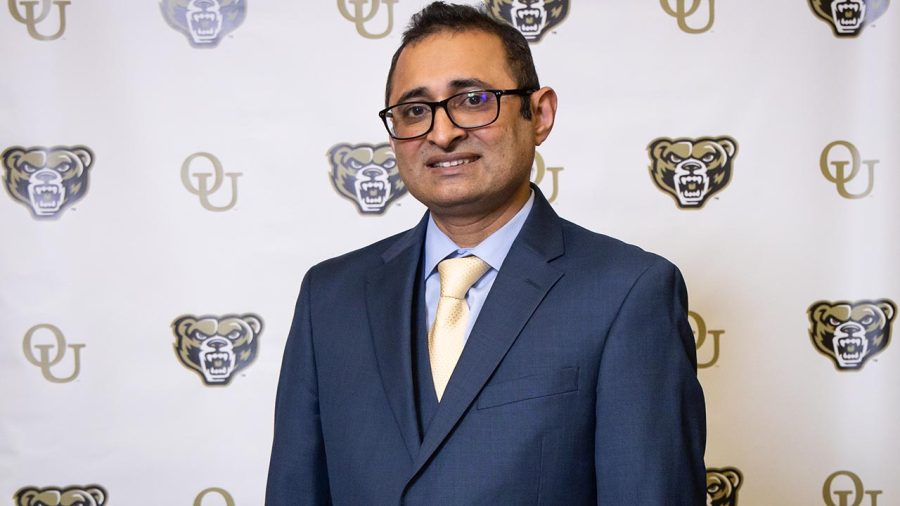OU professor awarded research grant for Anti-Deep Fake technology
Photo courtesy of Oakland University News
Dr. Khalid Malik is working on Anti-Deep Fake technology and Deep Forgery Detector.
Khalid Malik, an associate professor in the Department of Computer Science and Engineering at OU, was awarded a $92,000 research grant for his work on a program that can detect deep-faked videos.
A deep fake is a video that has been altered by an artificial intelligence to either change the context or subject. Deep fake programs can alter the appearance or voice of the subject for potentially scrupulous purposes. Legal analysts believe deep fake videos could become a threat to our democracy and could weaken the effect of journalism, so being able to tell the authenticity of a video is essential to public safety.
Dr. Malik is developing a Deep Forgery Detector (DFD), a program that can detect audio-visual forgeries. The tool would look for various types of deep fakes that are used to create fabricated content. Using Deep Learning, Knowledge Graphs and Natural Language Processing (NLP) technologies, Malik’s program would be able to detect when a video has been tampered with.
The different types of technology involved in the project make it an exciting research prospect.
“The value proposition of DFD development is its interdisciplinary approach that cuts across multiple areas: cyber security, Machine/Deep Learning, NLP, Knowledge Graphs, etc. This will provide a high impact across broad areas of forensic examination of multimedia evidence.” Malik said in an Oakland University News interview.
The funding comes from the Michigan Translational Research and Commercialization (MTRAC) Innovation Hub for Advanced Computing. MTRAC is a statewide program run by the Michigan Economic Development Corporation that aims to make Michigan a market leader in new commercial technologies. The program donated a total of $370,000 to different universities across the state to assist in the research and development of innovative technologies. Nearly a quarter of these funds went towards research at OU, which Dr. Malik thinks will help the program.
“This funding will be quite helpful to take our current research work funded by the National Science Foundation to the next level. Particularly, it will help us to focus more on translational aspects of our research,” Malik said to Oakland University News.
Malik is hopeful he will soon secure another award to help continue his research.
In addition to developing a reliable DFD program, training people to detect deep fakes is also incredibly important. A study conducted by the Salk Institute for Biological Studies concluded that most people are able to successfully detect deep-faked videos at the same lindustry-leading leading programs. The participants’ opinions on a video’s legitimacy were swayed by the results of a program’s analysis, but humans were ultimately more successful at identifying deep-faked videos. This is due to the fact that humans are able to specially process human facial features, and that participants were able to consider the context of the clip they were viewing.
Media literacy skills are going to become increasingly more important as the media people consume becomes more deceitful and subversive.










